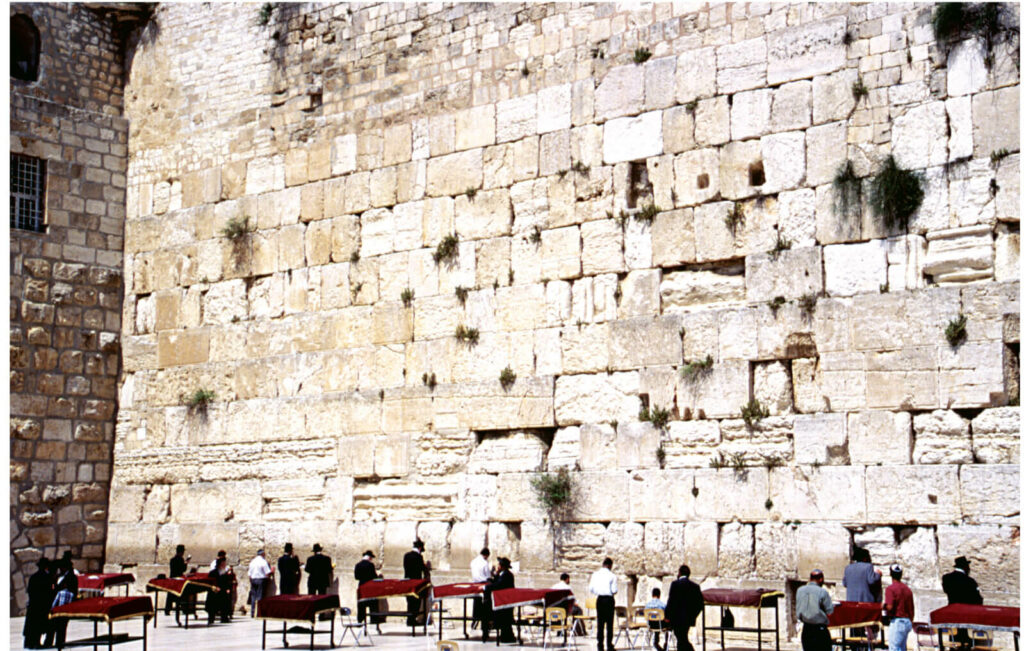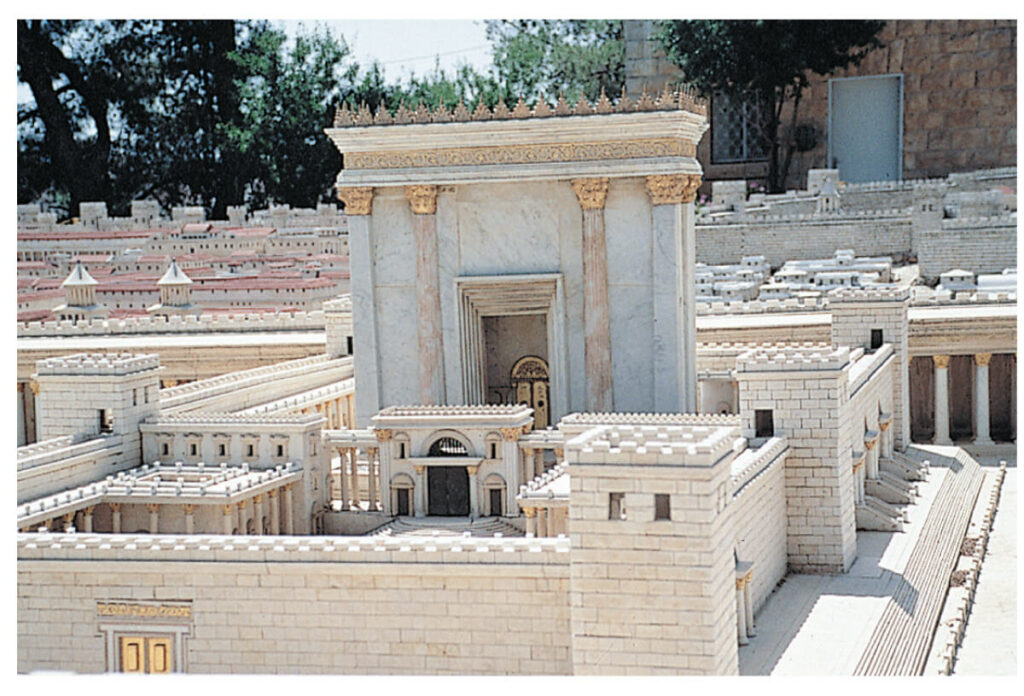
In A.D. 70, forty years after Jesus’ death and resurrection, the Tenth Legion put down a four-year Jewish rebellion against Roman rule. The soldiers destroyed the temple and city of Jerusalem, and in doing so, ended temple-centered worship with its animal and grain offerings for all time.
This upheaval destroyed Israel’s religious center. This profound change demanded interpretation.
The temple, Israel’s second, was built about 500 B.C. King Herod was restoring and refurbishing it during Jesus’ lifetime. No third temple was ever built. All that remains today of the second temple are foundation stones, which contemporary Jews regard as their holiest place—the Western Wall. They have made a holy place out of a place of tragedy just as the World Trade Center Memorial does.
Many Christians interpreted these events as beginning the end. They expected Jesus to return in their lifetimes. However, by the time Luke writes in the A.D. 80s, Christians anticipate a long delay before the end; in fact, Luke writes a second volume, the Acts of the Apostles, to tell the history of the Church as a sequel to Jesus’ own ministry. Acts sees the first Christian communities as models for all Christians in the long time between Jesus’ first and second comings.
Sunday’s gospel comes from the section of Luke that takes place in Jerusalem at the temple. Stones are a motif in this section.
Jesus arrives in Jerusalem in Luke 19.28. When welcoming crowds cry out, “Blessed is the One who comes in the name of the Lord,” some Pharisees in the crowd tell Jesus to stop his disciples. “If they are silent,” Jesus says, “The stones will cry out.”
Luke 20.17 tells us Jesus is the stone the builders rejected that has become the cornerstone of a new temple. This verse sees in Jesus the sure foundation of faith that the prophet Isaiah once saw in the temple and the Davidic kings.
Thus says the Lord,
See, I am laying a stone in Zion,
a stone that has been tested,
a precious cornerstone
as a sure foundation.
Those who put their faith in it
shall not be shaken (Isaiah 28.16).
For Luke, Jesus, who was rejected as Messiah and put to death, has risen and become the cornerstone of a new community. Those who believe in Jesus are living stones in the new temple, the Christian community.
- What tragedy you have faced has most made you who you are?
- What if we didn’t build churches and temples as places to worship? How might the people as living stones support each other in faith and worship?

As Sunday’s gospel passage begins, people admire the stones and adornments of the temple. Jesus, the cornerstone of a new community, stands in this scene before a magnificent, 500-year-old building no one could have imagined would be gone.
At the time Luke writes, Jesus’ prophetic words have come true. This testifies to the truth of the four imperatives in Sunday’s gospel that tell us how to survive such profound upheavals as the loss of a long-standing center of worship and life. The imperatives are—
- Don’t stray.
- Don’t panic.
- Give witness.
- Endure.
The gospel parts labelled Jesus 1, 2, 3, and 4 each contain one of these imperatives.
First, when people say, “I am he (the messiah). I know when the end will be,” don’t go after them. Keep faith in Jesus.
Second, when you hear of war and tumult, Jesus says, “Don’t be terrified. These things will happen. They are not the end.”
Third, and worse, expect persecution. Expect that what happened to Jesus himself can happen to followers. A time of persecution will be a time to bear witness. In that time, Jesus promises to put words in his followers’ mouths.
Fourth, and worse than persecution, Jesus tells his followers to expect parents, family, and friends to betray them and have them put to death. Here Luke has Jesus explaining how Christians in the 80s are to live as they face betrayal, even from other Jews and kin. Endure in faith is Luke’s ethic for the time between Jesus’ first and second comings.
- What are your personal imperatives?
- Which are like Jesus’ four imperatives?
Many people speak in Jesus’ name today, quoting passages like Sunday’s gospel. They insist wars, earthquakes, rampant bacteria, rising sea levels, and melting glaciers all tell us the end is near and we should follow them. Books on these topics sell hundreds of thousands of copies.
Luke, the writer and proclaimer of Jesus’ message for the time between Jesus’ two comings, insists Christians can face terrifying events. Faith is not certainty. But it is trust that no other than Jesus, who passed through death to life, offers words of eternal life. Faith in Jesus is our deepest anchor and surest model for enduring the shifts and swells of social and personal upheaval.
- What most threatens the calm of your world?
- What support do you feel from others’ faith at Eucharist?
- What would you like to be caught doing in a crisis?
